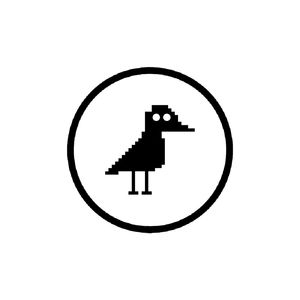

 Second-Hand Clothing: Waste Colonialism & Decolonial
Second-Hand Clothing: Waste Colonialism & Decolonial* This audio is generated by AI NotebookLM, based on my statement text of my video essay 2nd-hand clothing, 2nd-hand closing. 2nd-hand clothing, 2nd-hand closing (English) 中文版视频(潦草汉化) Intro of the video essay: Certain clothing philosophies are comprehensible and straightforward. Minimalists and vintage lovers convince people to escape from the capitalism mass production and consumerism traps. Patagonia asserts, “[they] are standing capitalism on its head: The full value of Patagonia is now going to fight the environmental crisis”. We can evaluate their philosophies and determine whether to adopt them. However, some are attempting to present statements more profoundly and delicately, which means, they are more difficult to verify due to their seemingly “critical and correct” expression. 該項目以烏干達的服裝品牌 Buzigahill 作為研究對象,探討二手服裝產業如何被呈現為一種廢物殖民主義形式,以及這種形式如何對全球南方造成「慢暴力」。該項目旨在深入研究 Buzigahill 的批判性主張,並邀請觀眾透過沉浸式視角,一同檢視其意圖和可能的盲點。 —————— My own comments on this AI audio: * Well explained the abstract concepts in the statement text; * Highlighted the video's Reflexive analysis approach in a simply way; * Kind of mixed up the video essay and its study object (the clothing brand); * Overvalued everything... (too performative).
 Persuasion Ethics of Reality Show
Persuasion Ethics of Reality Show* This audio is generated by Google AI NotebookLM. * The audio text is based on a short paper of mine:A Genuine Production or A Genius Packaging? Case Study of the Korean Reality Program: The Verification Zone: The Community * It's not exactly a retelling of my paper but more like extracting the content and commenting on it (this is NotebookLM's default logic). It's more simplified and relaxed compared to my points. 并不是完全复述我的文章,更像是提取文章内容并进行评论(这是 NotebookLM 在 default 模式下的逻辑),所以音频中提到的"the student" or "the paper"均指代我的论文,音频并不完全反映我的观点,更加简化和轻松,但听 AI 进一步展开也挺有趣的。 Outline of my paper and Bibliography FYI: * 主体 1-A New Tagging System? 对节目最显著的思想测试进行分析,主要涉及二元论和女性主义理论 * 主体 2-After the Showtime 对幕后访谈和报道内容进行分析,主要探索节目组的动机,涉及 peaceful persuasion 和 nonviolent communication * 主体 3-How to Survive? 结合 TARES 框架和 Intersectional 概念,分析节目整体是否符合传播道德 Bibliography Baker, Sherry, and David L Martinson. 2001. “The TARES Test: Five Principles for Ethical Persuasion.” Braunmühl, Caroline. 2022. Matter, Affect, AntiNormativity: Theory Beyond Dualism. Edition Kulturwissenschaft 270. Bielefeld: transcript Verlag. Christians, Clifford G., Theodore L. Glasser, Denis McQuail, Kaarle Nordenstreng, and Robert A. White. 2009. “Normative Theories of the Media: Journalism in Democratic Societies.” University of Illinois Press 47 (04): 47-1837-47–1837. doi.org. Christians, Clifford, and Michael Traber. 1997. Communication Ethics and Universal Values. 2455 Teller Road, Thousand Oaks California 91320 United States: SAGE Publications, Inc. doi.org. Duffy, Margaret, and Esther Thorson, eds. 2016. Persuasion Ethics Today. New York: Routledge Taylor & Francis Group. Fortner, Robert S., and Mark Fackler, eds. 2011. The Handbook of Global Communication and Media Ethics. Handbooks in Communication and Media. Chichester, West Sussex, U.K. ; Malden, MA: Wiley-Blackwell. Grunig, James E., and Hunt Todd. 1984. Managing Public Relations. Holt, Rinehart and Winston. Jiang, Wanting. 2024. “Evaluation of the MBTI Popularity in South Korea -- An Analysis Based on Media Coverage.” International Journal of Advanced Culture Technology 12 (1): 26–33. doi.org. Jung, Ji-Eun. 2024. “Thought Verification Zone” PD Kwon Sung-min: “Most Impressive Performer? Lim Hyun-seo". www.sedaily.com. Kwon, Seong-min, dir. 2024. “The Thought Verification Zone: The Community.” The Thought Verification Zone: The Community. South Korea: Wavve. Lee, Seung-guk, dir. 2024. “Thought Police: The Community” main PD and cast talk up a storm in rare footage of all the shenanigans and behind-the-scenes chatter. YouTube. www.youtube.com. “Thoughts Assessment.” n.d. Wavve. the-community-survey.web.app. Zollmann, Florian, Jeffery Klaehn, Tina Sikka, Kristin Comeforo, Daniel Broudy, Mandy Troeger, Elizabeth Poole, Alison Edgley, and Andrew Mullen. 2018. “The Propaganda Model and Intersectionality: Integrating Separate Paradigms.” Media Theory 2 (2): 213–39. doi.org.
 5
5 0
0